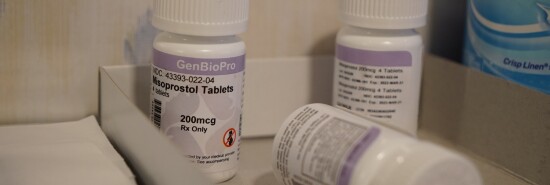
The abortion pill, which accounts for more than half of US abortions, never should have been approved
Chelsey Youman
We hear all the time about shadowy networks trafficking the abortion pill into the United States to women reportedly desperate for it. What we don’t hear are the countless heart-wrenching stories of mothers who regret taking the abortion pill. Instead of callously dismissing women’s traumatic experiences, what if we treat them as if their voices matter?
In the over two decades since the Food and Drug Administration approved the abortion pill regimen, it has killed millions of children in the womb, caused the deaths of 28 women, and is connected to more than 1,000 hospitalizations. It now accounts for more than half of abortions in the U.S., marking the next frontier of abortion.
It never should have come to this. By negligently approving the pill regimen without even requiring reporting of its adverse effects, the FDA chose politics over children’s lives and women’s health. Then, the FDA abandoned women to experience the evils of abortion alone in their homes without warning of the dangerous side effects.
That’s why we’re supporting four national medical associations and four doctors in their lawsuit to put a stop to this once and for all in the case of Alliance for Hippocratic Medicine v. U.S. Food and Drug Administration. We have a duty to face the physical and emotional damage the abortion pill wreaks on women.
Relaxed abortion pill protocols leave women in the dark about their abortions. Human Coalition served approximately 45,000 pregnant women last year alone. Our clients consistently reported being inadequately prepared about what to expect during their medication abortion. Many felt openly deceived. In their own words, women were misled about side effects, the intensity of cramping and bleeding, and wished they knew they would see their child’s remains or experience potential negative emotions such as fear, uncertainty, sadness, regret, and pain.
Research shows that women are at significantly higher risk of needing emergency care in the 30 days following a chemical abortion than they would be following a surgical abortion. One Finnish study showed women suffering adverse effects after a chemical abortion at nearly four times the rate of those who had surgical abortions.
The pill regimen has well-known side effects that can turn into medical emergencies if a woman is not properly screened. A woman who is further along in a pregnancy than she thinks could be beyond the FDA’s 10-week limit for approved use of the drugs. If the woman has an undetected ectopic pregnancy, she could be at serious risk of rupturing her fallopian tube by taking the pill regimen. If she isn’t aware that she has an rH factor incompatibility with the pill, she could be at risk of serious hemorrhaging.
Further complicating matters, women can now get a prescription for the pill without seeing a doctor in-person. Now, women are dangerously isolated from preventive testing and medical oversight by a physician, placing them at higher risk for serious harm and even death.
Many women also suffer psychological harm after a chemical abortion. One study tracked women who shared their experiences online of having had a chemical abortion. The vast majority, 77%, said they regretted their decision, and 38% reported issues with anxiety, depression, drug abuse, and suicidal thoughts because of the abortion.
This discussion of the harms of chemical abortion assumes that women freely choose it. In many cases, they are being pressured, if not forced outright, to take the pill. The pressures of family members or a partner, as well as domestic abuse cases, have long been significant drivers of abortion. Human trafficking victims are also at high risk of forced abortions — according to one study, more than half of trafficking survivors had reported an abortion.
The abortion pill intensifies this threat by giving traffickers and other abusers a more convenient weapon to kill unborn children covertly; the effects of the pill mirror symptoms of a miscarriage, so the evidence of a forced abortion is harder to uncover.
We joined this brief because we see this case as a collective effort to stop the greatest human rights abuse of our time. International companies are profiting off of the death of children and are expanding their reach into living rooms across America.
The FDA will survive this catastrophe, but the living victims of medication abortion may not — and children in the womb certainly will not.
Chelsey Youman is the Texas state director and national legislative adviser with Human Coalition.
